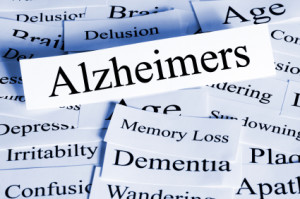March 10, 2014
 The New York Daily News (3/10, Landau) reports that researchers say they have “developed a revolutionary” blood “test that can predict if someone will develop Alzheimer’s disease.”
The New York Daily News (3/10, Landau) reports that researchers say they have “developed a revolutionary” blood “test that can predict if someone will develop Alzheimer’s disease.”
CNN (3/10, Cohen) reports that according to the study published in the journal Nature Medicine, even “though much work still needs to be done, it is hoped the test will someday be available in doctors’ offices, since the only methods for predicting Alzheimer’s right now, such as PET scans and spinal taps, are expensive, impractical, often unreliable and sometimes risky.” For the study, researchers “drew blood from hundreds of healthy people over age 70 living near” Irvine, CA and Rochester, NY. Five years after the blood draw, 28 of the participants had developed mild cognitive impairment or Alzheimer’s.
The ABC News (3/10, Krol) “Medical Unit” blog reports that comparison of the blood tests of those who developed memory changes to those who did not revealed “the importance of the 10 cell membrane lipids in the development of mental decline.” The study revealed that “people who had lower levels of these substances — even if they showed no signs of Alzheimer’s or mild cognitive impairment — were more likely to develop mental decline within three years.” Notably, the test “predicted this with more than 90 percent accuracy.”
The NBC News (3/10, Fox) website reports that the study, which was conducted by researchers at Georgetown University and the University of Rochester, found “no false negatives.”
Also covering the story are the Fox News (3/10) website, the NPR (3/10, Hamilton) “Shots” blog, HealthDay (3/10, Thompson), and AFP (3/10, (afp)).
Study: Alzheimer’s biomarkers may change depending on disease stage. Medscape (3/8, Anderson) reported that according to research published online March 5 in the journal science Translational Medicine, “researchers have uncovered a pattern of Alzheimer disease (AD) biomarker activity that differs from the accepted trajectory and could affect future clinical trials.” Specifically, the analysis involving 242 people “found that levels of AD-related biomarkers in patients with an autosomal dominant AD (ADAD) mutation increase early in the disease, before symptoms developed, but then, in contrast to conventional thinking, decrease once symptoms appear.” This finding indicates that “Alzheimer’s biomarkers change depending on the stage of the disease process.”
Article courtesy American Medical Association
Speak Your Mind